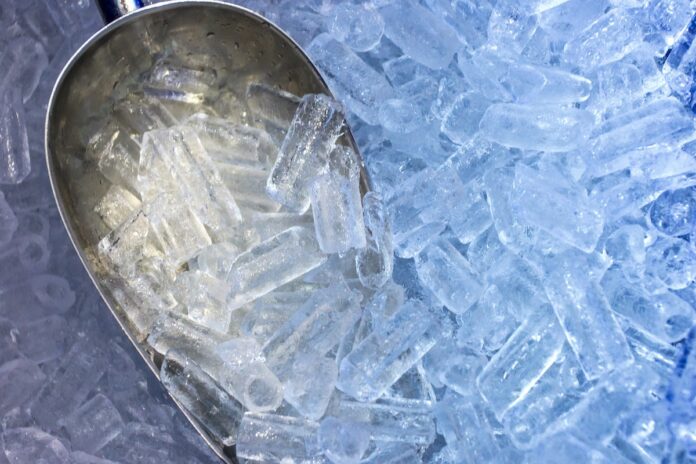Commercial ice makers are essential in many businesses, from restaurants and cafes to hospitals and schools. Whether serving drinks, preserving perishables, or using ice for medical purposes, a reliable ice maker is crucial. However, like any machinery, commercial ice makers can encounter problems ranging from simple issues to complex malfunctions. In this article, we’ll discuss some of the most common issues you might encounter with your commercial ice maker and offer practical tips for troubleshooting and resolving them.
Understanding the Basics of Commercial Ice Makers
Before we dive into the common problems, it’s essential to understand the basics of commercial ice makers. There are three main types of commercial ice makers: modular, under-counter, and countertop. Modular ice makers are designed for high-volume production and require a separate bin for ice storage. Under-counter ice makers are suitable for smaller businesses and can fit under standard-height counters. Countertop ice makers are compact and portable, ideal for outdoor events or temporary setups.
Commercial ice makers have several essential components that must work together for optimal performance regardless of the type. These include a compressor, condenser, evaporator, ice-making mechanism, and controls. The compressor circulates refrigerant to cool the evaporator, where water freezes into ice. The condenser removes heat from the refrigerant, and the ice-making mechanism produces ice. The controls manage the ice-making cycle, ensuring the machine produces consistent ice. The price start from $369.99
Troubleshooting Pre-installation Issues
Before you even install your commercial ice maker, several pre-installation issues must be considered. First, ensure your power supply and electrical connections meet the machine’s requirements. Commercial ice makers typically require a dedicated circuit and should not be connected to a surge protector or extension cord. Second, check your water supply and plumbing to ensure they meet the machine’s specifications. If necessary, you may need to install a water filtration system or water pressure regulator. Finally, ensure you install the ice maker correctly and level it properly to prevent leaks or malfunctions.
Addressing Ice Production Problems
One of the most common issues with commercial ice makers is inadequate ice production. If your machine needs to produce more ice, several potential causes exist. First, check your water supply and pressure to meet the machine’s specifications. Low water pressure can impede ice production, and high water pressure can cause the machine to shut off prematurely. Second, inspect your filters to see if they are clogged or dirty. Dirty filters can restrict water flow and reduce ice production. Third, verify that the machine’s refrigeration temperature is at the correct level. If the temperature is too high or too low, it can affect ice production.
Another ice production issue you may encounter is irregular ice shape or size. If your ice is coming out misshapen or too small, you can adjust the water level on the machine to increase or decrease the ice size. You can also check the ice machine settings to ensure they are set to the correct mode. Finally, evaluate the water quality to ensure it does not affect the ice production.
Resolving Ice Quality Issues
In addition to ice production issues, you may also need help with ice quality. Cloudy or opaque ice is a common issue caused by water filtration problems or mineral buildup. If you suspect your water filtration system is not working correctly, you can have it tested and replaced if necessary. You can also test the water hardness and adjust your ice machine settings accordingly. You can clean the machine using a descaling solution if you notice mineral buildup.
Another nice quality issue is a bad taste or odor in the ice. If your ice has an unpleasant taste or odor, it could be due to water source contamination. Investigate the water source for any potential contaminants or impurities. Additionally, regularly clean or replace the water filters to ensure they effectively remove any unwanted particles. Finally, sanitize the ice machine regularly to eliminate bacterial growth contributing to taste or odor issues.
Fixing Ice Machine Performance Problems
Sometimes, your commercial ice maker may encounter performance problems beyond ice production or quality. If your machine is not running or powering on, there are several steps you can take to troubleshoot the issue. First, check all the electrical connections to ensure they are secure and undamaged. Inspect the power cord, outlet, and any switches or control panels. If everything appears in order, verify that the control settings are correctly adjusted, and all necessary switches are turned on. Finally, examine the compressor and motor to ensure they are functioning properly. Any odd sounds or excessive heat may indicate a problem that requires professional attention.
Excessive noise or vibrations coming from the ice maker can also be a cause for concern. Inspect the machine for loose or worn parts, such as screws, belts, or fan blades. Tighten or replace them as needed. Additionally, check the condenser and evaporator coils for any signs of damage or blockages, as these can affect the overall performance of the ice maker. Lastly, pay attention to the fan and motor, as issues with these components can lead to excessive noise or vibrations.
Preventive Maintenance for Commercial Ice Makers
Regular preventive maintenance is crucial to ensure the longevity and optimal performance of your commercial ice maker. Implement the following practices to keep your machine running smoothly:
Regular cleaning and sanitization
Clean the ice machine regularly according to the manufacturer’s guidelines. Remove any ice buildup, clean the evaporator, and sanitize the machine to prevent bacterial growth and maintain hygienic ice production.
Proper ice storage and handling
Store the ice in clean, designated containers or bins to prevent contamination. Train your staff on proper ice handling procedures to minimize the risk of cross-contamination.
Routine inspections and maintenance schedules
Schedule regular inspections of your ice maker to identify any potential issues before they become major problems. It includes checking for leaks, inspecting the water and electrical connections, and verifying the performance of essential components.
Conclusion
Troubleshooting common issues with commercial ice makers is essential to ensure uninterrupted ice production and maintain high-quality ice. By understanding the basics of your ice maker, addressing pre-installation considerations, troubleshooting ice production and quality issues, fixing performance problems, and implementing preventive maintenance practices, you can maximize the efficiency and lifespan of your machine. Remember, if you encounter complex issues or are unsure about any troubleshooting steps, it’s always advisable to seek professional assistance to avoid further complications.

















